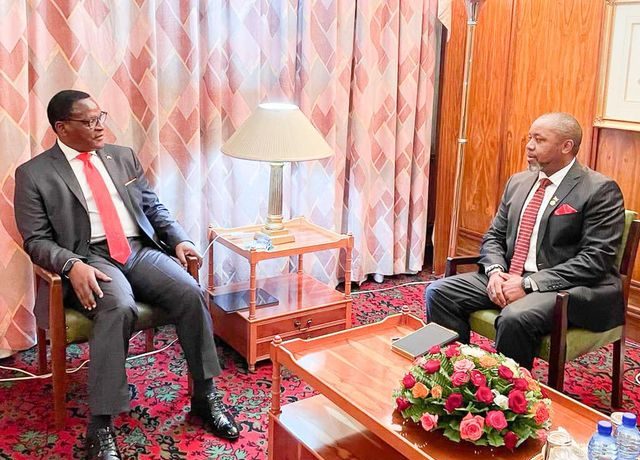In a sensational revelation, a comprehensive 292-page dossier, believed to be the authentic and long-concealed report detailing the overhaul of public service systems initiated by President Chakwera in 2021, has surfaced and swiftly circulated across social media platforms yesterday.
This extensive report, purportedly crafted by a task force under the stewardship of Vice President Saulos Chilima, has caused a stir, prompting intense scrutiny and speculation. When approached for confirmation, task force members maintained an oath of secrecy, refusing to divulge details. However, an anonymous insider, privy to the leaked document, disclosed that its contents closely mirror the findings submitted to President Chakwera.
Highlighted within this leaked document are radical proposals, including the elimination of parliamentary sitting allowances, the establishment of comprehensive board facilities for all domestic travel, and the termination of risk allowances for healthcare professionals.
Critics wasted no time in denouncing these recommendations, decrying them as callously indifferent to the plight of civil servants. One outspoken civil servant, speaking under anonymity, condemned the proposal for full board facilities as a blatant attempt to enrich lodge owners, particularly those of Indian descent.
“A cursory lead of the document shows why President Lazarus Chakwera dismissed the report. It was couched with brazen insensitivity of the suffering civil servants in the country. Full board for civil servants is nefarious scheme to make owners of lodges mostly the so called Malawians of Indian origin richer,” said one Civil Servant who refused to be named.
In hindsight, senior political analyst Joseph Masina lauded President Chakwera’s prudent decision to withhold endorsement of these reforms, citing their inherently oppressive and disruptive nature.
“The wisdom of Chakwera was in seeing and relegating these reforms to a prolonged consideration where impractical aspects needed to be thrown away,” said Masina.













